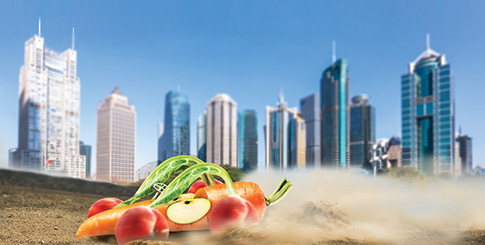Organics
As a category, Stone sees plenty of room for growth in organics. He believes consumers are beginning to view organics differently, not just through the lens of health, but through what’s sustainable for Mother Earth.
“We don’t have to destroy the earth to grow produce,” Stone states. “We can grow organically without some of the chemicals that aren’t good for our soils or water systems, and we have the younger generations to thank for this.”
LoPiccolo, too, comments on the connection between younger shoppers and organics, saying organics currently account for 10 percent of his product line in comparison to zero just a few years ago.
Del Bene has also “dabbled in organics,” with numerous requests, but “not high enough demand to start stocking, because of short shelf-life.” He explains that organics are often only brought into the city if preordered, and many chefs do not plan far in advance. “They make decisions on the fly, so we stock what we know they’ll want.”
Specialty produce
The desire for exotic produce, from Asian vegetables to hot and spicy vegetables to tropicals, continues to spike. Del Bene cites a clear uptick in demand for these specialty commodities: “Everyone wants a jump on everything—to be the new kid on the block with specialty vegetables,” he says.
Stone believes one of the reasons the produce industry is doing so well is attributable to younger generations who are enthusiastic about the culinary arts and taking many historically cultural produce items mainstream. “The Food Network is a big deal and the mixing of cultures is the way of the future.”
LoPiccolo and Del Bene both highlight movement in micros, for small plate portions and product mixes. “We stock A to Z,” says Del Bene, always sourcing with an eye toward trending items with local chefs, to always stay on the cutting edge.
“Nothing is ever out of season—that’s the point,” explains Stone of the year-round availability area customers seek. “Other countries’ ag practices, no matter which country, keep improving and some are supported by U.S. companies.” This crossover and blending of companies and culture gives consumers access to even greater variety. “What an opportunity for people to enjoy a mix of tastes from different cultures.”
Local, local, local
Hyper-local and state-grown branded produce (under the ‘Michigan Grown, Michigan Great’ label), continue to power consumption and drive sales for wholesalers and retailers in the Great Lakes State. Buyers can source the best of all worlds with fruits, vegetables, and herbs grown conventionally in the field, organically, or from greenhouses throughout the nearly 97,000-square mile state.



